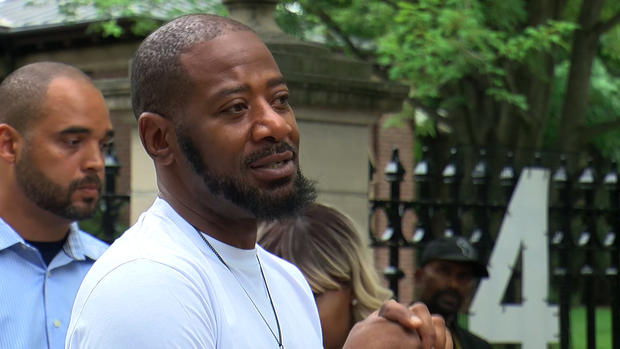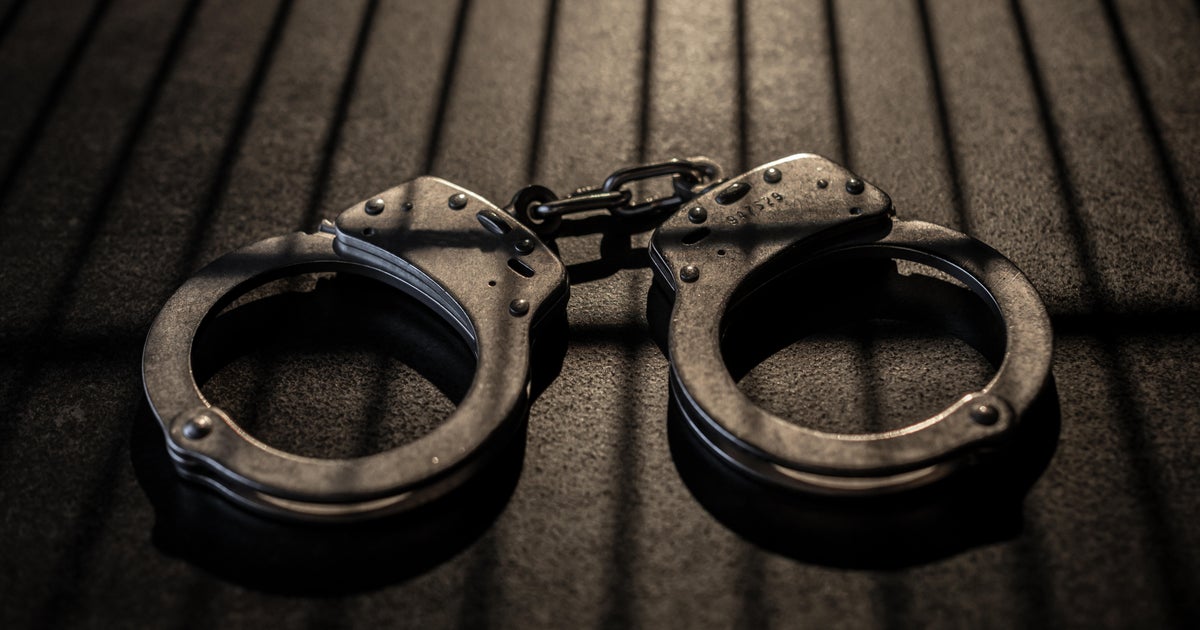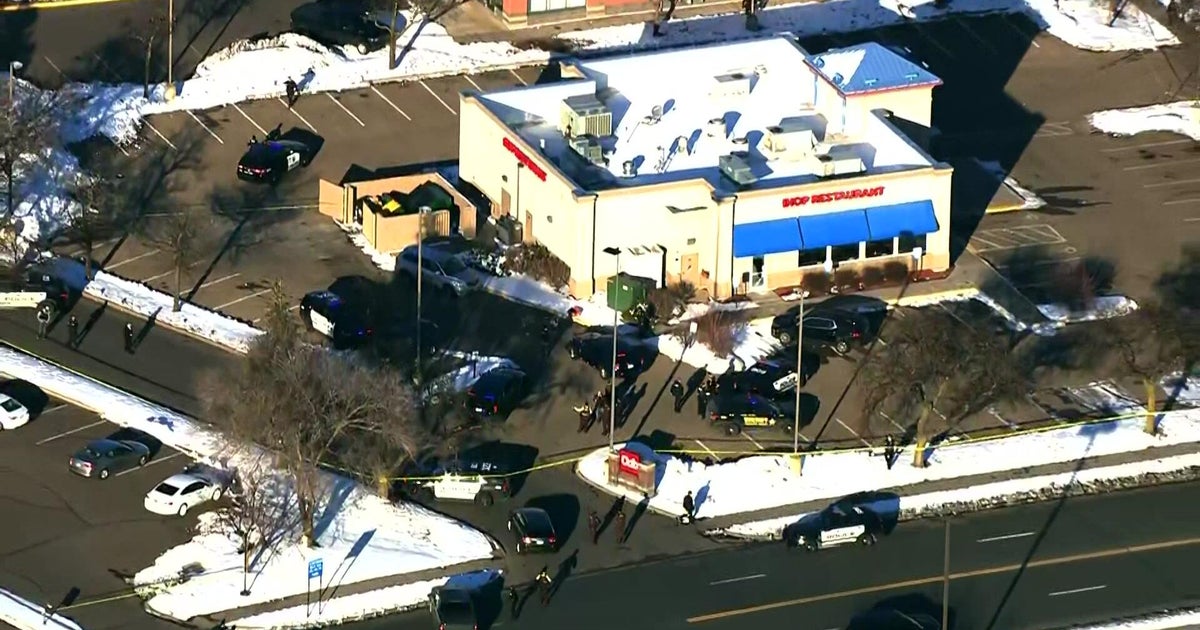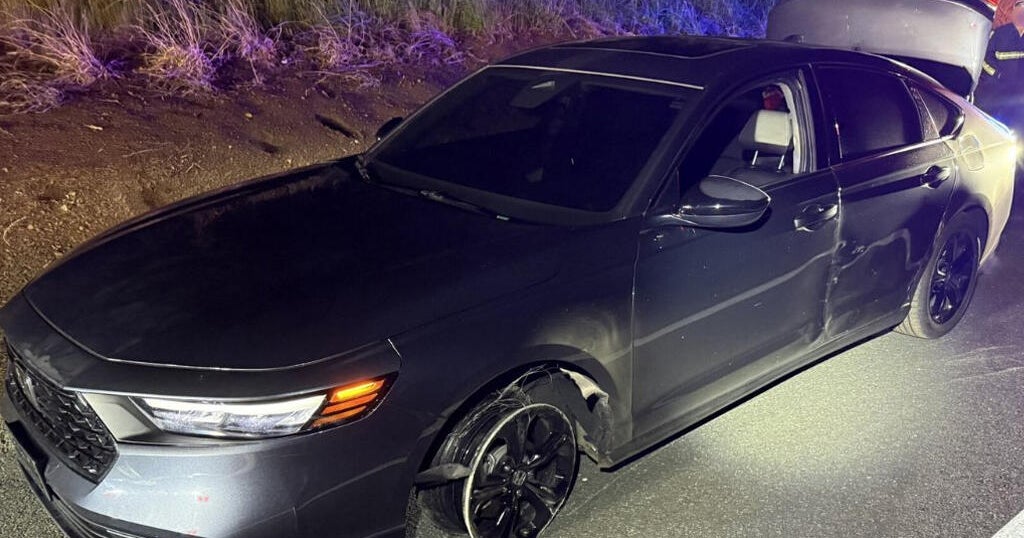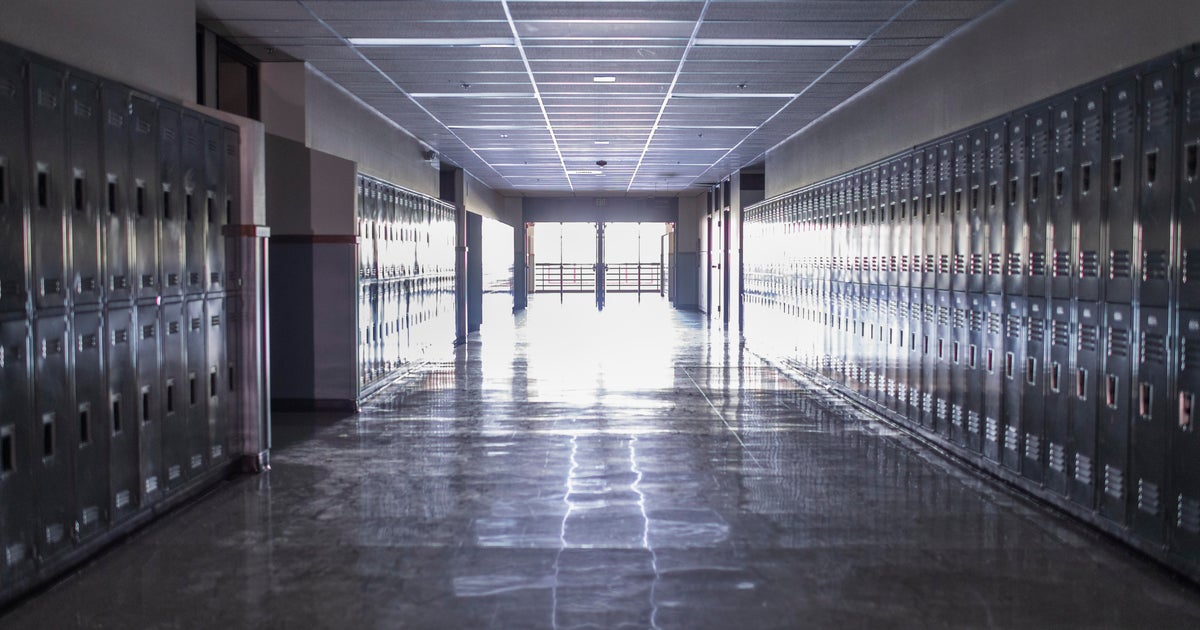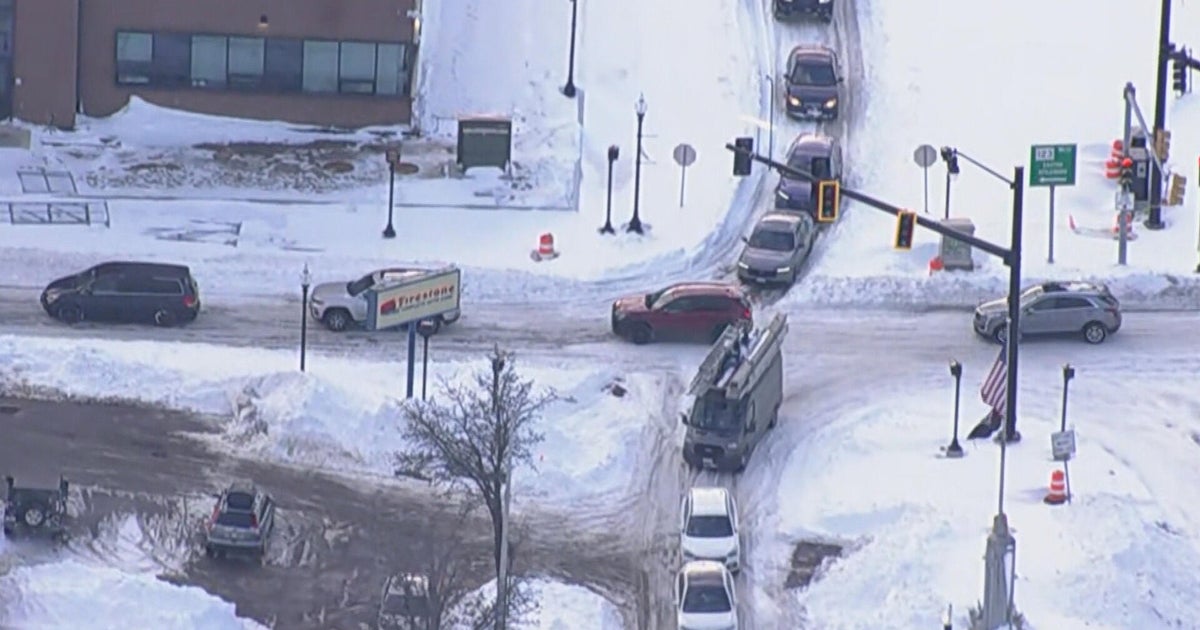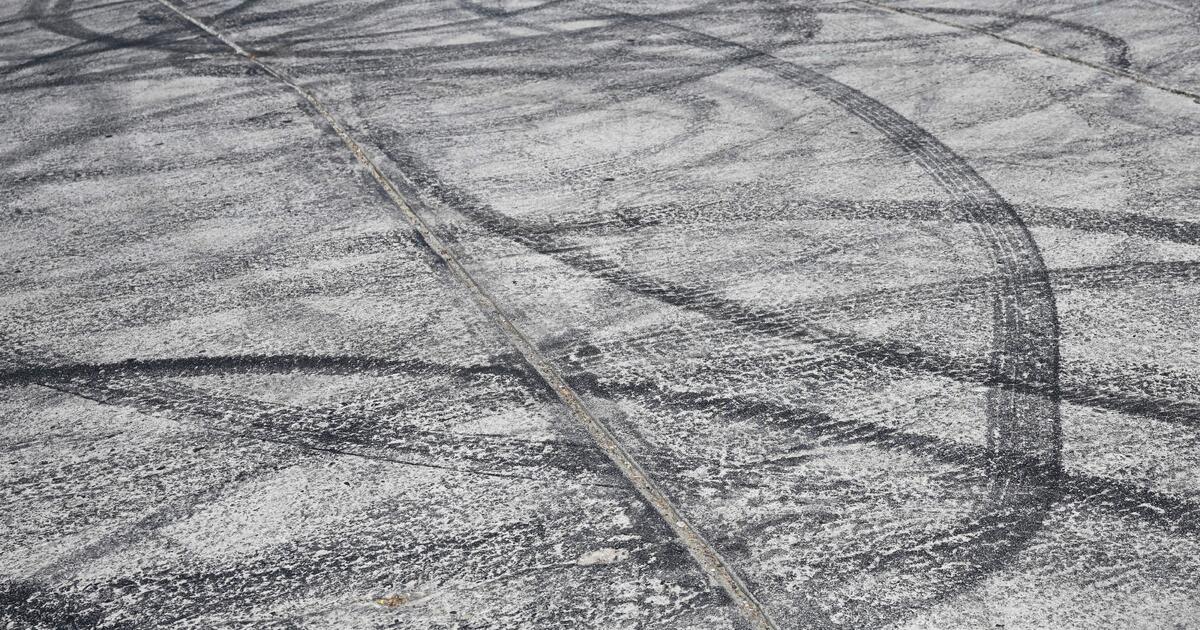Rep. John Thompson Must Sign Form To Release Traffic Stop Video, Police Say
MINNESOTA (WCCO) -- A Minnesota state representative is speaking out about the growing controversy that followed a St. Paul traffic stop.
A St. Paul police officer pulled over Rep. John Thompson, DFL-St. Paul, near the intersection of Seventh Street East and Wacouta Street early in the morning on July 4. According to the police department, the reason for the stop was because Thompson's car did not have a front license plate.
Per police records, Thompson identified himself as a state lawmaker and presented a Wisconsin driver's license. He was then cited for driving with a suspended license. WCCO has learned that Thompson's license was revoked on April 21, 2019 for his failure to pay child support.
According to records, Thompson does not hold a Minnesota driver's license and has never had a driver's license issued by Minnesota, but you can have action taken on your driving record in Minnesota even if you do not hold a valid license. And a license can be suspended because of child support. His license was reinstated Wednesday after taking care of the child support issue.
Thompson responded to the ticket by accusing the officer of racially profiling him, but the sergeant reiterated the stop was for the license plate, which is required by state law. Two days after he was cited, Thompson spoke at an event marking the five-year anniversary of the death of his friend, Philando Castile. When speaking, he alluded to the weekend incident, saying that he'd been racially profiled and pulled over for "driving while Black."
In a statement released Monday evening, Thompson reiterated his belief that he was involved in a "pretextual traffic stop," and he says he supports the release of the body camera video -- in which he says "you won't see the officer do anything that isn't by the book."
"But the issue is we need to rewrite the book. I do not know the officer who pulled me over, and I have no reason to believe they have any hate towards me specifically. Officers do, however, work in a system that has allowed these too often pretextual traffic stops to continue despite tragic consequences," Thompson said.
He says the stop happened two days before the anniversary of Castile's death, who was killed by an officer during a traffic stop near the Minnesota State Fairgrounds. That event was a major inspiration for his run for public office on a platform that called for police reform.
"I was able to drive away from this interaction while other Black Minnesotans, in very similar situations, have not. The desire to be treated with respect and be able to drive away from this interaction safely was why I informed the officer I was a state representative during our conversation," Thompson said.
The lawmaker said he has a Wisconsin driver's license because he was a former resident, and it "hadn't previously posed an issue for me." He now says he will get his Minnesota license "as I should have before." He also says his child support issue was "resolved long ago." He says he wonders why he wasn't cited for the original reason he was pulled over.
"I was only given a ticket for driving with a suspended license. I do not know why I wasn't cited for driving without the front license plate -- the reason for my stop," he said.
Thompson says he was missing a piece of the bracket on his new car's plate holder, and hadn't repaired it before driving that evening.
St. Paul Police Chief Todd Axtell said in a social media post that he reviewed the body-worn camera footage of the stop and spoke with the officer. He concluded the stop "had absolutely nothing to do with the driver's race."
"Simply put, the traffic stop was by the books," Axtell said Friday. "I'm dismayed and disappointed by the state representative's response to the stop. Rather than taking responsibility for his own decisions and actions, he attempted to deflect, cast aspersions and deny any wrongdoing."
Gov. Tim Walz told WCCO he thinks that the body camera video should be released.
"I think you clear a lot of this up by releasing that. If we are asking the police to release videos and everything I would have the expectation we would release them in all cases," Walz said.
When WCCO first requested the body camera and dash camera video of the stop, police cited Minnesota law and said it will be kept private until the case is resolved. On Monday evening, St. Paul Police Public Information Officer Steve Linders made a clarification.
"We also support releasing the body worn camera, but still have to go through our procedures to ensure anything released is done so in accordance with state law and properly redacted," Linders said. "Rep. Thompson could expedite the process by signing our data practices form. We could get it to him [Tuesday]. We would even deliver it. He could also come in to our offices in person."
WCCO looked at a copy of the ticket issued by St. Paul police to Thompson. On the ticket, it says his home address is on Blair Avenue in St. Paul. The problem is that this house is not in his district, and state law requires state representatives to live in their district. Also, his filing papers with the Minnesota secretary of state's office show he apparently crossed out a home address, instead providing a P.O. box. He also checked a box saying he wants his address to remain private.
The box is for those with orders of protection or a police report showing they have been threatened. And checking the box means providing a separate form with a home address listed. The secretary of state's office says Rep. Thompson's separate form is not a public document.
WCCO wanted to ask Secretary of State Steve Simon if any of this was a violation of state law, but we did not get a comment from him. The secretary of state's communications director Peter Batz-Gallagher gave us this statement: "We don't have any legal authority to take action. We don't have guns and badges."
WCCO was told House Speaker Melissa Hortman is on vacation and didn't have a comment. House Majority Leader Ryan Winkler also did not have a comment. DFL Party Chairman Ken Martin released this statement Sunday night, expressing his disappointment with Thompson's accusation of racial profiling:
Nobody is above the law, including our elected officials," Martin said. "We expect all of our elected officials, regardless of party, to not only follow the law, but to hold themselves to the highest standards. Whether they like it or not, their words, actions, and behavior are going to be scrutinized by the public. As such it is important for people in positions of power and influence to model the type of behavior we expect from everyone. Representative John Thompson fell short of that standard, and I am disappointed by his recent actions.
GOP Party Chairwoman Jennifer Carnahan released this statement Monday afternoon:
We call on Rep. John Thompson to allow the body cam footage from his traffic stop to be released by the St. Paul Police Department to give transparency to the situation and issue an apology to the department. Thompson's vitriolic actions and language last summer in Hugo to the uncertainties of his actual residency need to be addressed, answered and explained. Nobody is above the law and Minnesotans deserve honest representation in the state legislature.
GOP Rep. Eric Lucero announced his filing for a formal ethics complaint against Thompson Monday morning for an incident that occurred on June 29. Lucero said Thompson "falsely and maliciously" stated that Lucero was a racist on the House floor as the body was discussing an omnibus package related to higher education amid a special session at the Capitol.
Thompson, serving his first term in the Minnesota Legislature, has been an outspoken advocate for changing Minnesota's laws on policing to bolster accountability. He and other DFL lawmakers supported several proposals, including one that took aim at "pretextual stops" by curtailing traffic stops for certain minor equipment violations like expired registration or missing a windshield wiper, though failure to have both license plates displayed was not included in the bill.
Here is Thompson's statement in full:
Five years ago last week, we marked the killing of my friend Philando Castile, who was shot by a police officer during a traffic stop. Since being pulled over myself on July 4, my greatest regret is how the recent events have allowed us to overlook this time that should have been spent reflecting on the life of my friend and the changes that are needed to create a Minnesota where he would not have lost his life.
I was pulled over in what is referred to as a pretextual traffic stop. The same type of stop that led to the killing of Philando, as well as Daunte Wright this April. Pretextual stops have been shown to not only do little to stop serious crimes, but they also disproportionately target nonwhites. This was the racial profiling I spoke to, and I've been working to get rid of these types of stops long before this summer.
There have been calls to release the bodycam footage from my stop, which I want to make clear I fully support. It is within the power of the St. Paul Police to release that footage, and I am not a barrier to that. In the video, you won't see the officer do anything that isn't by the book, but the issue is we need to rewrite the book. I do not know the officer who pulled me over, and I have no reason to believe they have any hate towards me specifically. Officers do, however, work in a system that has allowed these too often pretextual traffic stops to continue despite tragic consequences.
As much as I hate how recent coverage of this issue has been about me, I recognize I have an obligation to my constituents, and owe them an explanation. I have an obligation for Black men who don't have the platform that I do. I'm pushing legislation for more police accountability, and this situation is a great example of why that work matters.
During my stop, it was brought up that my vehicle did not have a front license plate, I did not have a Minnesota driver's license, and there was a record of me having missed a child support payment. While all of these have relatively simple explanations, I take responsibility for my fault in not addressing these issues and allowing them to eclipse the hard-fought work done in the name of police reform.
My family bought a new car, and as with any new vehicle, we had to wait for our plates and get the proper tools to attach them. Not long after purchasing this car, it was rear-ended, and we did not drive the vehicle for some time. When I did drive the car on July 4, it should have had a front license plate, but I didn't have the right part for the front bracket. After I was stopped, they ran my license, which is a Wisconsin driver's license. I previously lived in Wisconsin, and my family and I considered moving back there to care for a family member, who will now be coming to live here. I live and work in St. Paul, and have for many years. My Wisconsin license hadn't previously posed an issue for me, but I will now be changing it to a Minnesota license, as I should have before. During my stop, I was also informed that my license had been suspended for a minor child support issue, one which was resolved long ago. I owe $0 in child support.
After all of this, I was only given a ticket for driving with a suspended license. I do not know why I wasn't cited for driving without the front license plate - the reason for my stop.
I was able to drive away from this interaction while other Black Minnesotans, in very similar situations, have not. The desire to be treated with respect and be able to drive away from this interaction safely was why I informed the officer I was a State Representative during our conversation. Too many Minnesotans are dealing with barriers like this without a respectable title in front of their name. Philando was notably pulled over 49 times, largely for minor violations. I believe these pretextual stops are part of structures that operate to restrict access to jobs and housing, lock us up, and publicly humiliate Black, Indigenous, and communities of color. Interactions like this block us from our families, block us from our kids, and create new barriers to a quality of life.
We need better, and that's what I'm working towards. I understand that my emotions can sometimes make it hard for some people to hear the real message. These are difficult issues, and I've lost loved ones, but I ask you to work with me. We need a broad coalition, including law enforcement, to come together to understand that Minnesotans that look like me - my family, friends, and community - are living with these issues every day. I hope we can focus on conversations that center around making that change possible.
